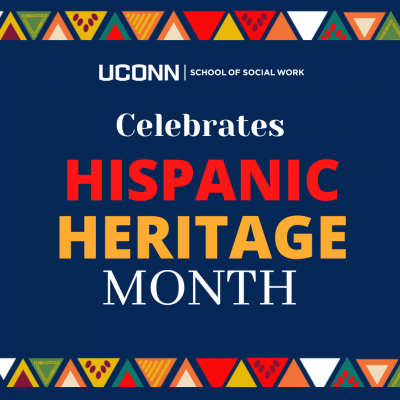From the Desk of Dean Heller
Dear Colleagues,
Thursday, September 15, is the start of Hispanic Heritage Month. This annual event celebrates the many diverse cultures and histories of Hispanic and Latinx/a/o communities. At the School of Social Work, we are pleased to highlight the achievements and contributions of these communities to our country and world.
This year’s theme is “Unidos: Inclusivity for a Strong Nation,” a sentiment that we believe and support at our School. Diversity, equity, inclusion, and anti-racism (DEI/AR) are central to our mission and infused throughout our Strategic Plan for the next five years. Our goals include engaging faculty and staff in meaningful dialogue about DEI/AR in our community and in our work. This dialogue, and a commitment to social justice action and accountability, make our School and community stronger.
We know there is a growing need for Spanish-speaking social workers in our community and state. In response, we launched a Spanish-speaking child welfare track for our bachelor’s students who intern at the Department for Children and Families. We have also revived our Puerto Rico Study Travel Program, which enhances the skills of students to work with Hispanic and Latinx/a/o communities.
Inclusion means more than representation but also fostering a sense of belonging for our students, staff, faculty, and members of our community. To that end, we are co-sponsoring with Hartford Campus and the School of Law a kick-off event on September 15 at the Hartford Public Library. Please join us to partake in live music, refreshments, networking and to hear our guest speaker Jacquelyn Santiago Nazario of COMPASS Youth Collaborative. RSVP here: s.uconn.edu/sswhhm. The Puerto Rican / Latin American Cultural Center’s (PRLACC) is also promoting several events throughout the month.
In solidarity,
Nina Rovinelli Heller
Dean and Zach’s Chair
